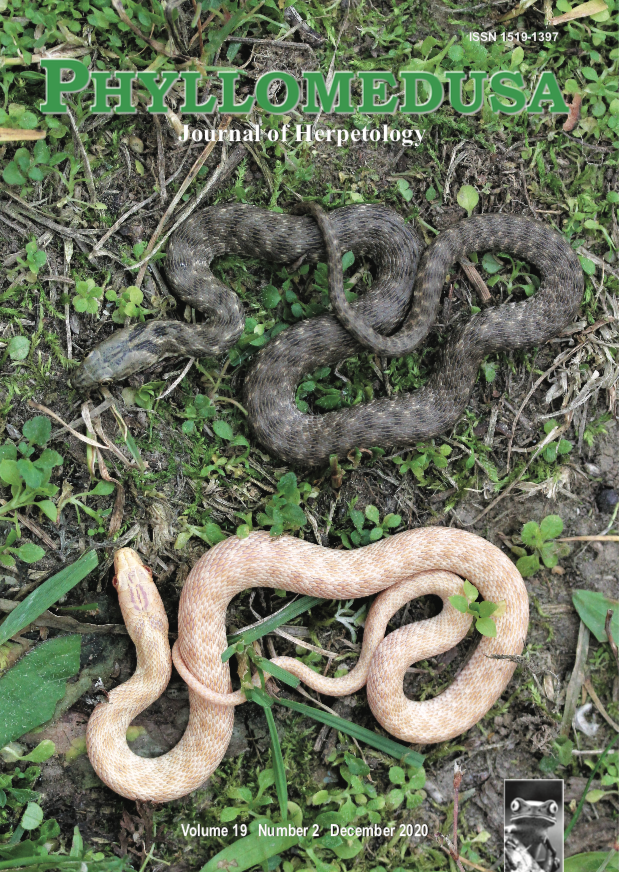Natural history of the marsupial frog Gastrotheca albolineata (Anura: Hemiphractidae) in lowland Brazilian Atlantic Forest
DOI:
https://doi.org/10.11606/issn.2316-9079.v19i2p189-200Keywords:
behavior, breeding, defense, larval development, natural marks, site fidelityAbstract
Natural history of the marsupial frog Gastrotheca albolineata (Anura: Hemiphractidae) in lowland Brazilian Atlantic Forest. Gastrotheca albolineata is a marsupial frog endemic to the Atlantic Forest in southeastern Brazil. It remains poorly studied in nature and is uncommon in herpetological collections. We studied the natural history of G. albolineata during a four-year period (2015 to 2019), in Ubatuba, São Paulo state, Brazil, at its southernmost distribution. Our results show that G. albolineata is arboreal, perches from low to medium heights, and breeds during the dry season without chorus aggregation. Calling activity occurs during the day but is more intense during the first half of the night. We used dorsal body markings to identify individuals. Six individuals were recaptured during the study, indicating site fidelity during the active season. The defensive repertory of G. albolineata contains seven different behaviors, including a high-pitched distress call. Egg development in the female’s dorsal pouch took at least 87 days, and fully formed froglets were born with a snout–vent length of 16 mm. Our data substantially add to the knowledge of the natural history of Brazilian marsupial frogs and can be helpful to delineate conservation strategies for elusive species such as G. albolineata.
Downloads
References
Downloads
Published
Issue
Section
License
Copyright (c) 2020 ESALQ-USP

This work is licensed under a Creative Commons Attribution-NonCommercial-NoDerivatives 4.0 International License.
All material originally published in Phyllomedusa belongs to Escola Superior de Agricultura Luiz de Queiroz - Universidade de São Paulo. All contents are under a license of Creative Commons BY-NC-ND.


 Impact Factor (JCR): 0.600
Impact Factor (JCR): 0.600 CiteScore: 1.0
CiteScore: 1.0